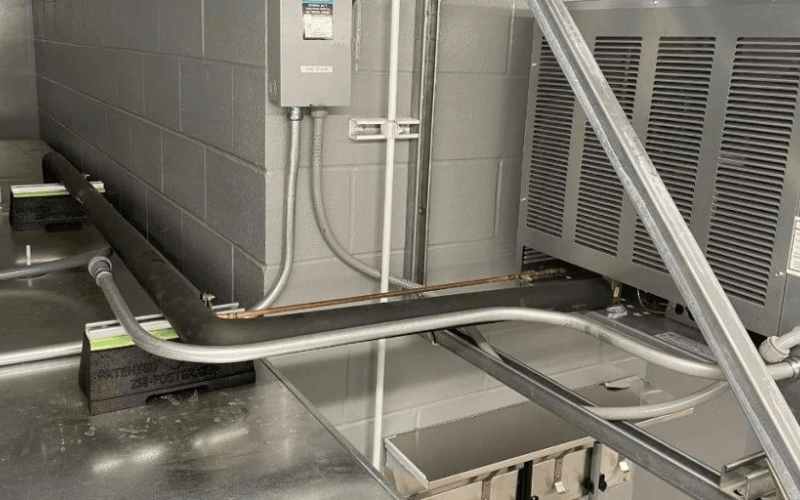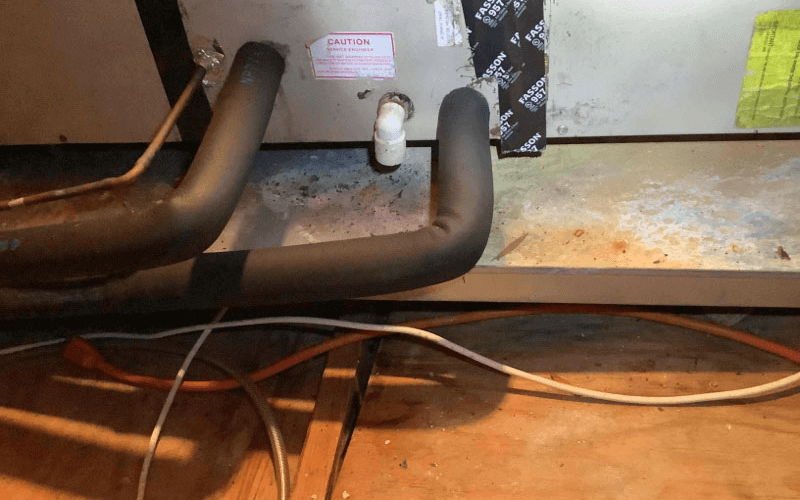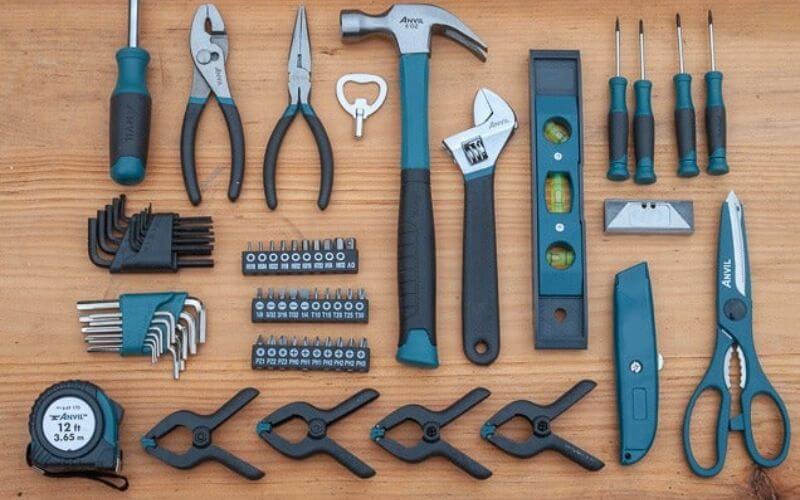Although it may seem strange, ice buildup on your air conditioner in summer can be very annoying. You can prevent this type of “freezing” by being aware of its causes. To find the answer to what are the most common causes of freezing, we conducted some research.
Among the most common causes of this issue are:
- A filthy filter
- No airflow through the evaporator coil
- Minimal refrigerant
- Thermostat problem
- There are too many closed ventilation openings and ducts
- Inadequate fan speed
Table of Contents
ToggleDon’t worry if you have any more queries. We will recommend the best solutions while examining these causes. Please keep reading.
Also check: How Long Should A Heat Pump Run Per Day?

Summer freezing air conditioners are common culprits
Whatever the cause, it could indicate that the AC unit needs maintenance if it freezes during the summer. Turn off the device first. Once that is done, you should seek the assistance of a qualified HVAC specialist to diagnose the issue if it is too complicated for you to resolve on your own.
However, please check the most frequent issues and their fixes before contacting an expert immediately.
Clogged filters
The air conditioner filter controls the quality of air produced by the air conditioner. It removes contaminants and impurities from the air that the air conditioner is circulating. Effective air filters stop suspended matter from entering the air conditioning system and prevent them from causing mechanical issues.
Maintaining a low interior temperature will require twice as much effort if the filter gets clogged with dirt, lint, or debris. The air conditioner will not circulate air due to this type of deposit. As a result, the air inside the air conditioner is compressed, which leads to condensation and coil freezing.
Airflow restriction in the evaporator coil
The air conditioner’s coil absorbs the heat inside the home and directs it outside. Ice will form on these coils if they freeze due to dirty air filters, which will cause the cooling process to stop. Sadly, the same cooling process humidifies the air conditioner and can lead to coil freezing.
Evaporator coils may also freeze if they are clogged with dirt, pet hair, or other debris. As a result, the coil becomes insulated, and heat is no longer transferred through the fins to the coolant. Evaporator coils can also freeze up if condensate water is too low in temperature and freezes on the coil fins. The coolant continues to cool the loop throughout the cooling process until temperatures below 32 degrees Fahrenheit are reached.
The coil immediately freezes when the water condenses. It is crucial to address the issue immediately because the air conditioner will not function if the coil freezes.
Low Refrigerant Concentration
To help your home reach the ideal temperature, the air conditioner refrigerant expands the coil inside the unit. Inadequate coolant levels can obstruct the coil’s ability to exchange heat, resulting in freezing. These low readings are frequently the result of a leak.
The air conditioner will become overloaded if there is an insufficient refrigerant to keep track of the cooling process. This may wear down the air conditioning system’s mechanical components over time and necessitate replacement. To fix this problem, hire a qualified HVAC technician to examine the unit for any potential leaks and recharge.
A thermostat problem
An issue that occurs more frequently with older air conditioner models is thermostat failure. The thermostat issue could cause the AC unit to freeze. However, it can happen on chilly or freezing winter nights. This is commonly more frequent in cold climates. An air conditioner’s cooling coil becomes too cold and needs warm air to operate correctly.
The operating thermostat will shut off when the room reaches the set temperature. You can tell a thermostat issue if the unit keeps running and cools above the temperature setting. The thermostat will need to be replaced or calibrated in this situation.
Closed vents and ducts
Vents in empty rooms are frequently closed by homeowners to save money on energy. However, this approach may reduce the performance of the air conditioner. Supply ports and vents that send cooled and dehumidified air to the room in the house and exhaust ports and ducts that transport warm, humid air to the system’s air conditioning unit for dehumidification and cooling. The device’s airflow becomes restricted when many of these ducts are closed, which over time leads to condensation. The coil’s temperature is too low, and the condensation quickly freezes into ice.
Inadequate fan speed
The AC unit might freeze if the fan breaks down. An air conditioner must have the ideal balance of airflow and pressure to function correctly. The airflow in the unit will be reduced if the fan is not running or is working at the incorrect speed, and the heat that results will cause the coil to condense and freeze. Adjust the fan speed as necessary.
Can Hot Water Be Poured on A Frozen AC?
Yes, the ice in the coil will melt when hot water is poured into the air conditioner. Do we suggest it? The evaporator coil may need to be replaced if the heat is too intense. However, the ice on the device melts even in lukewarm or flowing water, and it is less dangerous. To avoid splashing water on other parts of the device and to remove any moisture from the area around the coil when using this method, it is crucial to pour water into the coil carefully.
HVAC experts do not suggest the best method to thaw the coil to use this method. The air conditioner can cause a short circuit if water is poured on it carelessly, just like any electrical device. Instead, HVAC professionals advise using various defrosting techniques for the air conditioner.
Let the nature work
Letting the ice melt naturally is one of the safest and simplest ways to defrost an air conditioner. Because of the hot summer weather, the ice can melt without removing your fingers. To accomplish this, turn off the unit using the control panel and the entire system using the breaker box on the home electrical panels. You need to wait for the ice to melt at this point.
Avoid using a sharp object to scratch or remove the ice by hand. Both you and the parts of your device could get hurt. The ice will take a while to melt if there is a lot. Make sure to clean up any accumulated water under the evaporator coil. Having a few towels on hand is also helpful.
How long does the air conditioner take to defrost?
It can take the air conditioner coil 2 to 24 hours in hot weather to melt completely. If the device is in direct sunlight, using a hair dryer, or using hot water technology, it could take up to 24 hours.
Also check: Rheem Vs. Ruud: Are They the Same?
Solve the freezing issue to use the AC properly!
For several reasons, air conditioners can freeze in the summer. If you notice that your device is frozen, we hope that this guide will assist you in solving this problem quickly. An HVAC professional should always be consulted before attempting to repair an air conditioning system.





















